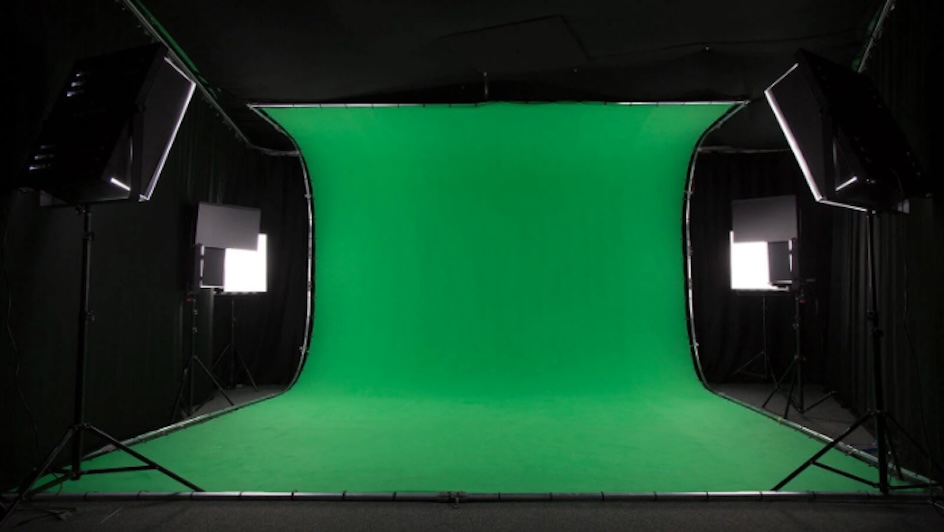The Colourful Backstory Behind Green Screens

Green screens are iconic in film and video production, but they weren’t always lime-hued.
This visual effects wizardry – known as chroma keying – dates back to the late 1800s, when early filmmakers used black cloth and painted glass to superimpose imagery.
Today, the principle is the same: film a subject against a bright green backdrop, then digitally replace that colour with computer-generated imagery (CGI) of environments, or whichever fantastical realm is needed.
Green is favoured because it rarely appears in human skin tones and has high luminance, making it easy for digital cameras – and our eyes – to isolate. Plus, camera sensors are designed to mimic human vision, and we’re surprisingly biased towards this primary colour.
However, green isn’t flawless. Its brightness can cause colour spill, where reflections subtly tint your subject. That’s where blue screens prove useful. Blue offers cleaner edges and less spill but requires more lighting. Classic films like “Star Wars” used blue screens extensively, especially with blue-sensitive film stock.
Today, chroma keying is everywhere: from Marvel blockbusters to your grandmother’s Zoom background. The technology has become accessible, and creators across industries are getting in on the action.
And the future? Shows like “The Mandalorian” are pioneering light-emitting diode (LED) wall technology, which offers dynamic, in-camera backgrounds that respond to movement and light. Although pricier than CGI, LED walls bring realism and immersion without the green haze.
Still, for now, green reigns supreme. It’s cheap, effective and doesn’t require a spaceship to shoot on Mars; just a bit of editing magic.
Image Credit: Source


























Go Social
SocialNew Social Releases – Check them out NOW! N$3/day subscription
TikTok Content
SocialNew content for your TikTok - Watch NOW!
Weird ’n Wacky
FunHilarious video clips featuring animals, sports, food, & more!
Status Hub
SocialTrend on WhatsApp with these statuses!
Social Trending
SocialWant Top Trending Stickers and WhatsApp Stories!?